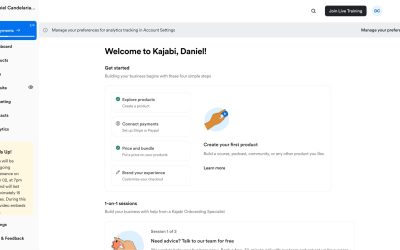Should I hire a graphic designer or create my own logo?
When it comes to creating a logo, should I hire a graphic designer or should I do it myself? You’ve just started inching into your private practice…and your startup budget is $100…or zero dollars. You have a plan to bootstrap the whole thing—you’ve heard that it’s possible to design your own logo and website. Your therapist friend down the street built his own website on some thing called Wix, and his turned out pretty well. So why would you pay someone else to do this stuff for you?
A professional designer will give you a professional result.
As with most things in life, when it comes to design, you get what you pay for. Designers spend just as much (and sometimes more) time honing their craft as we do to become therapists. They study the theory of design, the psychology of design, and learn the technical prowess they need to harness the most modern design tools available today.
“But my cousin gave me this bootleg version of Adobe Photoshop and I’ve been getting pretty good at making cool doodles!”
Maybe you can get some things started with the tools you have, but can you do it as well as someone who does this all day, every day? How much time will it take you to come up with your own aesthetic, sketch out ideas, and bring them to life, versus paying someone? How long will it take you to resolve technical snags, when you could be spending this time doing what you do best?
When you hire a professional, you get a professional result. A logo is one of the most practical and recurring ways through which you communicate your brand. What do you want your brand to say? Do you want it to say, “we cut corners,” or “we invest and believe in our product”?
A graphic designer can see things you can’t see.
I don’t have any tattoos, but I want to get one eventually. When I imagine this process, I know a tattoo artist can see things that I can’t see. How the tattoo would look on my arm from another person’s view, and the view of the person who lives and breathes for beautiful visual images, is more important than how I think things will appear to others. When we think about branding, it’s also a reality that a graphic artist can take your verbal description of how you envision your company, and turn this into a visual image.
It’s a one (or two) time expense.
Out of all the things you’ll spend money on in your practice, a noteworthy logo done by a professional is something that is usually a one, maybe two, maybe possibly three time expense that lasts for a number of years. Let’s say you spend $800 on a really solid logo and it lasts for 8 years until you decide to do a rebrand. Let’s say you charge $100 per session, so in that case 1 session per year will pay for your professional logo.
There are a lot of bad logos out there.
Because a lot of therapists don’t justify the expense to have a professional create their logo, you have the opportunity to REALLY stand out when you make this investment. A great logo pops out of the webpage, captures the attention of your next potential client, and becomes a memorable component of your business and brand. It also helps raise expectations that clients have of you and the experience they’ll have in working with you—which we know has a LOT to do with whether clients get better and are likely to recommend you to someone else.
A couple months ago I was helping one of my consulting clients build her practice, and she happens to have owned and run her own graphic design business for the past 15 years. Even though she’s a graphic designer, I still recommended she hire someone else to do this work. Why? Because of these 4 reasons.
John Clarke, MA, EdS, NCC, LPC is a licensed psychotherapist and a private practice expert. He has built thriving practices from the ground up in San Francisco, CA and Charlotte, NC. In building his current practice, he had 6 private-pay clients booked for the first day that his doors were open.
Get in touch today for a free initial consultation to learn how private practice consulting can help you take your business to the next level.




